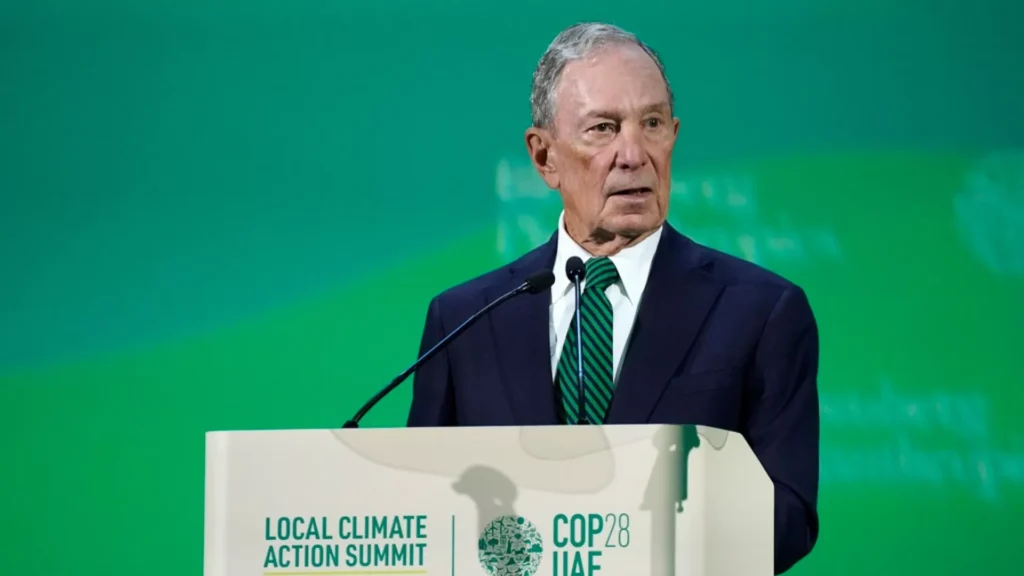One of the first executive orders Trump has made on returning to office was to withdraw US participation from the Paris Agreement – the second such action he has undertaken. Under this move, the US has been stopped from contributing towards greater funding for international climate initiatives, leaving a chasm in global climate financing.
Three days later – just on January 23 – the billionaire and former mayor of New York City stepped into the role of filling in cash support to maintain the United Nations Framework Convention on Climate Change (UNFCCC) operational despite funding shortfalls. This pledge from Bloomberg was unveiled on January 23, consistent with his commitment over the years toward global climate action.
The place of the US in international climate financing
The United Nations Framework Convention on Climate Change (UNFCCC) is the watchdog of international climate agreements and oversees the Paris Climate Accord, which mostly subsists on the contributions from its 200 member countries. As one of the largest economies in the world, the US has always historically belonged to the category of the top three contributors, which covers about 21% of the UNFCCC budget. Trump’s withdrawal has opened an even larger gap, prompting private philanthropists like Bloomberg to step in.
Simon Stiell, Executive Secretary of UN Climate Change, commending Bloomberg’s intervention, said:
“We deeply appreciate the generous support from Bloomberg Philanthropies and the leadership shown by Mike Bloomberg. While government funding remains essential to our mission, contributions like this are vital in enabling the UN Climate Change secretariat to support countries in fulfilling their commitments under the Paris Agreement and a low-emission, resilient, and safer future for everyone.”
Bloomberg’s Intervention Again in US Climate Policy
This is not the first time Bloomberg has stepped up into filling US climate commitments. After Trump’s first withdrawal from the Paris Accord back in 2017, Bloomberg scraped his coffers together in order to make up the UNFCCC budget shortfall to keep it functioning. Later, Biden took the US back into this agreement, but Trump’s latest withdrawal again makes the nation isolate itself from international climate action.
“From 2017 to 2020, a period when the federal government was inactive, cities, states, businesses, and the public stepped forward to uphold commitments to our country – and today, we are ready to do it again,” Bloomberg said, in a statement.
Bloomberg’s philanthropic group, Bloomberg Philanthropies, together with other US-based climate financiers, has vowed to cover the funding gap left by the US withdrawal. However, exactly how much or who else has stepped forward has yet to be disclosed.
Impact of US Exit
Trump’s exit from the Paris Agreement has, indeed, illuminated a very critical lane of all the criticism which the country has been getting globally. Today, the United States finds itself aligned closely with only a few countries, including Iran, Libya, and Yemen, that are not within the accord. It takes about a full year to exit from an accord, so the US will still be a signatory to the agreement for a time.
Bloomberg emphasised the dire consequences of climate inaction, using as an example the recent spate of wildfires in California as irrefutable evidence for urgent requirements for climate action. There was also evidence that he was citing to show that, notwithstanding political opposition, clean energy industries are booming across both Republican and Democratic states, showing that climate action is not just an environmental imperative but also a commercial opportunity.
A Commitment to Progress in Climate Change Despite Federal Inaction
“There are many aspects of support heistings,” said Bloomberg. He pledged also to continue working with states, municipalities, and businesses to ensure that the U.S. continues to comply with its global obligations regarding climate change. Along this line, he will also partner with local climate leaders in tracking and reporting the country’s progress over the next four years.
Contrary to the action that President Trump has taken on federal withdrawal from international climate agreements, it has not deterred individual states, corporations, or self-made philanthropists like Bloomberg from continuing to propel changes in the fight against climate change. The foregoing picture is becoming an increasingly visible trend in which subnational and private institutions are gradually stepping in to fill the gaps left by federal inaction.

